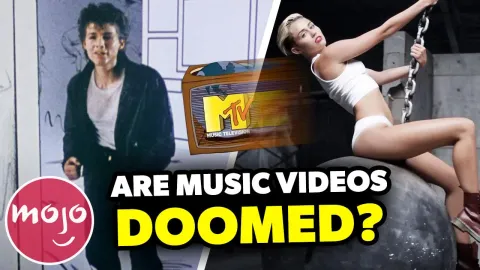Are Music Videos Actually Going Away?

Welcome to MsMojo, and today well be discussing the current state of music video: where it is, where it came from and where its going.
The music industry retains many diverse markets, in an effort to appeal to all demographics. The youth, however, remains that industrys central focus. Youth culture has driven how the music industry advertises, how it innovates and where it funnels its financial resources. Record companies have, historically speaking, dumped a lot of promotional funds into the medium of music video, yet todays climate is much different than the MTV-focused landscape of yesteryear. YouTube, TikTok - and previously Vine - videos now take up a lot of that propagative real estate when it comes to selling the latest song.
So, how did we get here?
This history of music video actually predates the 1980s, although it was that latter decade that undoubtedly saw this format achieving its greatest commercial importance and success. The MTV revolution essentially demanded that EVERY artist, both new and old, get on board with music videowhether they liked it or not. This resulted in some very forward thinking clips, from some equally creative people. It also created watershed moments, such as the cultural touchstone that was Michael Jacksons Thriller. Said simply: music videos drove the market. These mini-movies often contained their own unique narratives and served as tools to promote the latest single and album releases. And many artists who would make a mark in TV or movies often got started with music videos.
Today, however, its unclear as to the continued relevance of the music video, particularly when it comes to competing with shortened attention spans. Theres little to no room for expansive, cinematic storytelling in a TikTok, but do young music fans even want that sort of thing? Are they affected in the same way as their parents and grandparents, or should these clips simply get to the point? The question assumes a lot, perhaps unfairly so. Theres clearly a demand for new music and an audience thats watching their TikTok feeds just as intently as older generations showed up for appointment videos by their favorite artists.
Many artists of today have eschewed traditional forms of music videos altogether, and have instead embraced visualizers or lyric videos. There are a number of reasons for this, from simple financial economics to the artistic liberties that can be taken with regard to visuals. Comparisons can then be made to the long-form narrative videos were used to, only with a more abstract and immediate way of connecting with an audience. Additionally, lyric videos may arguably better convey an artists intentions, as they lack the filter of a director re-interpreting a songs meaning. This more direct approach can build a bridge between that performer and those listening on the go or at home.
There will always be those larger-than-life celebrities that retain enough clout to make music video production feel worth it for a label or company. Taylor Swift, Beyoncé, and Lady Gaga all come to mind. Younger bands or artists might also utilize the medium in order to capture a certain moment within the cultural zeitgeist. Or perhaps to simply go viral, for lack of a better term. Modern acts such as Doja Cat, Olivia Rodrigo and Lil Nas X all achieved success via TikTok before graduating to the big time. And it was a combination of music and visuals, condensed and distilled down to sip-sized moments, that allowed them to breakthrough into the mainstream.
At the same time, many modern industry professionals maintain that traditional music videos have not died out, but instead might represent a future renaissance, perhaps based in nostalgia. Kids who were born as internet natives cannot remember a time when MTV was the arbiter of music taste. A wide open internet has changed how we receive music, whether that be on physical media Fridays or on streaming services like Spotify or Bandcamp. This more balanced playing field essentially means that record labels might potentially need to chase trends instead of creating them internally.
This could be a good or bad thing, depending upon your point of view. However, there are some, such as Eric Weiner from The Wild Honey Pie, who see music videos as the ultimate way of linking art, artist and listener. He told Fast Company in 2024 about how, in his opinion, the connection you have with that artist, their music, and their personality is just a totally different beast when theres a visual component that has a style and a story. Those same streamers likely remember a period of their youth when music videos made a huge difference in their decision to buy a record. That tie-in to nostalgia essentially means that record labels arent going to be abandoning music videos for their artists anytime soon.
That said, the onset and integration of AI into our everyday lives has already changed how some album covers are executed, so its only a matter of time before AI-generated music videos might become the norm. The power remains in the hands of the consumer at the end of the day, however. Speaking and voting with ones money is the ultimate way of ensuring that the record industry understands how fans see the current landscape, what they wantand perhaps more importantly, what they DONT want. So ultimately its up to the music fan to determine the videos eventual fate.
Can you remember the first music video that captured your imagination and didnt let go? Which modern artists utilize the music video medium best in your opinion? Let us know in the comments!
